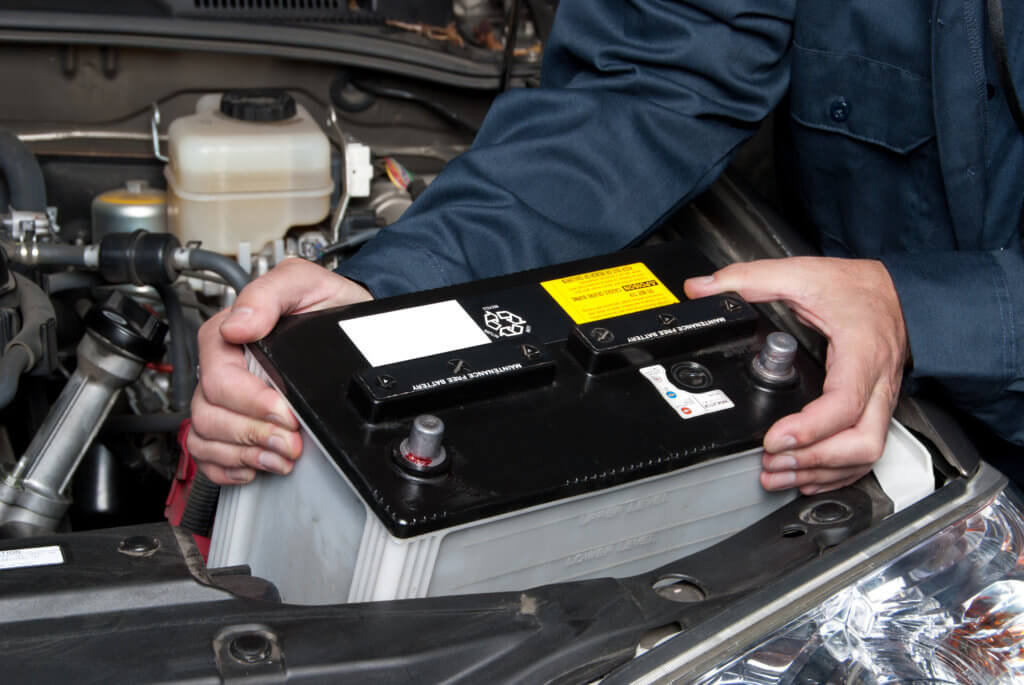
You might not want to admit it, but we are fast approaching winter, and there are not many more things as frustrating as waking up on a cold, dark morning, getting ready for work, and finally climbing into your snow-covered car to find out that your car battery has died. This can cause an untold amount of stress, and it can happen to any of us at any time. If you have been the victim of such a situation, you have probably wondered why it has been fine all year and why it has to happen in the coldest part of the year. Well, as the number one car repair company in Watford, we are here to explain the reasons why. In this blog post, we are going to go over the inside of the common car battery, why they actually fail in winter and what the tell-tale signs of a failing car battery are.
Inside Of Your Car Battery
The most common kind of car battery is a lead-acid battery; fairly dependable and not too expensive, they are the go-to for most car manufacturers around the world. The battery itself is made using a plastic casing that houses a comprehensive range of lead plates plunged into a pool of electrolytes (this is a mixture of sulfuric acid and water). One pair of plates make up one cell and when fully charged, each of the cells in a lead-acid battery produces around 2.1 volts. So, a 12-volt battery will consist of six cells and is, technically, a 12.6-volt battery; a battery that only produces 12 volts will most likely not start your vehicle.
We’re going to delve into the science a little bit now. Lead-acid batteries do not produce a charge themselves, but they receive and store charges through a chemical reaction between the lead plates of each cell and the electrolyte that it resides in. But, as the reaction itself occurs, the ‘positive’ and ‘negative’ plates are coated with something called ‘lead sulfate’. This is called sulfation, and it can significantly reduce the life of your car battery.
So, Why Do Batteries Fail In Winter?
Extreme cold or heat can increase the discharge rate of your car battery, which can make winter a ‘triple-threat’ to your battery. The exposure to the summer heat evaporates the water in the electrolyte, which escalates sulfation. Then when the winter months arrive and the temperature plummets, the chemical reaction slows down. Alongside this, a colder engine requires more power, and features such as defrosting your car place a large demand on your battery. Although lead-acid batteries can last over four years, they can give in a lot earlier under bad conditions.
Failing Car Batteries: What Are The Signs?
Sometimes your car battery won’t warn you before it fails. However, there are some quite common signs to look out for, including:
- You have had your battery for three years or longer
- Light blue or white corrosion on the casing
- Slower engine cranking
- Your headlights are yellow and quite dim, instead of white
- The electronic accessories in your car start to stop working
- Your dome lights are quite dim
- The horn of your car sounds strange
- Swollen or cracked battery casing
- You can smell sulfur (smells like rotten eggs)
How We Can Help
If your battery has failed or you are concerned that it will fail soon, our experienced team of car servicing and repair specialists can help you. If you would like to book an appointment with one of our experts, call us at 01923 268 082 and 07850 359 668, or email info@motorsolve.co.uk.
